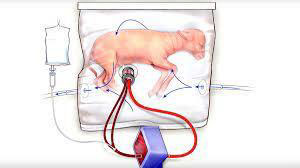 Preterm babies are born before 37 weeks of gestation. It is estimated that 15 million babies are born preterm annually. In cases of extreme prematurity, prior to 28 weeks of gestational age, survival rates range from 9% at 22 weeks GA to 94% at 28 weeks. Despite a direct correlation with survival rates and gestational age, surviving infants are susceptible to increased cases of morbidity due to organ system immaturity and iatrogenic injury. Neurological and pulmonary issues are particularly common in extremely premature infants. In addition, neurodevelopment delays and social issues have been associated with extreme prematurity. Thus, providing the opportunity for physiologically normal organ system development, outside of the mother’s womb, may address the myriad of health care issues associated with extreme prematurity.
Preterm babies are born before 37 weeks of gestation. It is estimated that 15 million babies are born preterm annually. In cases of extreme prematurity, prior to 28 weeks of gestational age, survival rates range from 9% at 22 weeks GA to 94% at 28 weeks. Despite a direct correlation with survival rates and gestational age, surviving infants are susceptible to increased cases of morbidity due to organ system immaturity and iatrogenic injury. Neurological and pulmonary issues are particularly common in extremely premature infants. In addition, neurodevelopment delays and social issues have been associated with extreme prematurity. Thus, providing the opportunity for physiologically normal organ system development, outside of the mother’s womb, may address the myriad of health care issues associated with extreme prematurity.
Based on technology developed by Drs. Alan Flake and Marcus Davies of the Children’s Hospital of Philadelphia, Vitara has developed an artificial womb that can potentially support extremely premature infants born between 23-25 weeks gestational age. The device, known as the EXTra-uterine environment for neonatal development (EXTEND), was first described in 2017. The fetus is placed in plastic bag that is filled with amniotic fluid and is kept warm with the use of a heating pad. A pumpless arterio/venous cannula allows for the exchange of blood gases from a membrane oxygenator and the delivery of nutrition and therapeutic agents. In a fetal lamb model, the research team has demonstrated that the EXTEND can maintain fetal survival for up to 28 days. In addition, the team has demonstrated long term survival of the lamb (6 months) after ventilation. Encouraged by these results, Vitara has been in discussion with the FDA regarding potential clinical trials of the EXTEND system. Vitara was recently featured by the Wall Street Journal: Artificial Wombs for Premature Babies Are a Step Closer to Reality.


